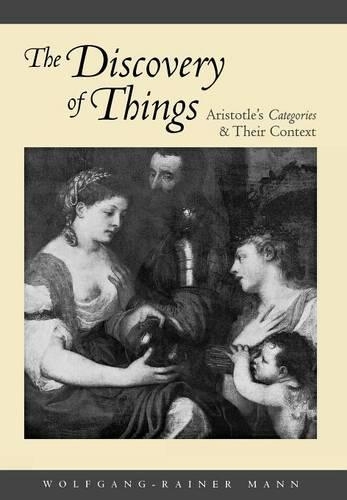
The Discovery of Things: Aristotle's Categories and Their Context
(Hardback)
Publishing Details
The Discovery of Things: Aristotle's Categories and Their Context
By (Author) Wolfgang-Rainer Mann
Princeton University Press
Princeton University Press
23rd May 2000
United States
Classifications
Professional and Scholarly
Non Fiction
Philosophy: logic
Ancient Greek and Roman philosophy
160.92
Physical Properties
Hardback
224
Width 197mm, Height 254mm
482g
Description
Aristotle's Categories can easily seem to be a statement of a naive, pre-philosophical ontology, centered around ordinary items. Wolfgang-Rainer Mann argues that the treatise, in fact, presents a revolutionary metaphysical picture, one Aristotle arrives at by (implicitly) criticizing Plato and Plato's strange counterparts, the "Late-Learners" of the Sophist. As Mann shows, the Categories reflects Aristotle's discovery that ordinary items are things (objects with properties). Put most starkly, Mann contends that there were no things before Aristotle. The author's argument consists of two main elements. First, a careful investigation of Plato which aims to make sense of the odd-sounding suggestion that things do not show up as things in his ontology. Secondly, an exposition of the theoretical apparatus Aristotle introduces in the Categories--an exposition which shows how Plato's and the Late-Learners' metaphysical pictures cannot help but seem inadequate in light of that apparatus. In doing so, Mann reveals that Aristotle's conception of things--now so engrained in Western thought as to seem a natural expression of common sense--was really a hard-won philosophical achievement.Clear, subtle, and rigorously argued, The Discovery of Things will reshape our understanding of some of Aristotle's--and Plato's--most basic ideas.
Reviews
Democracy and Association is an important contribution not only to the field of political theory but also to empirical political science. Warren's multifaceted typologies are a major advance. -- Margaret Kohn, Political Theory
Author Bio
Wolfgang-Rainer Mann is Associate Professor of Philosophy at Columbia University.
